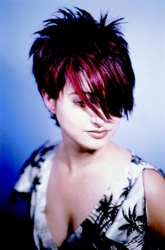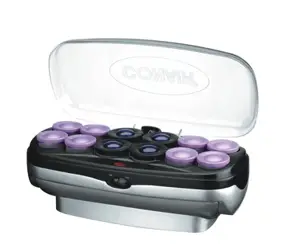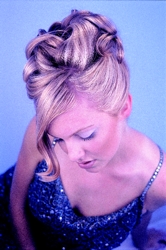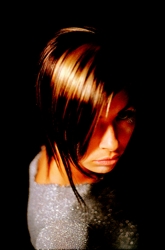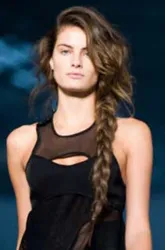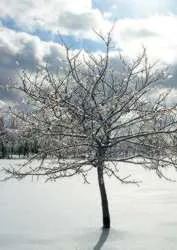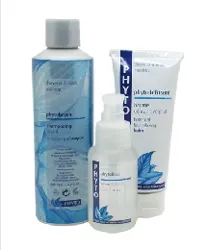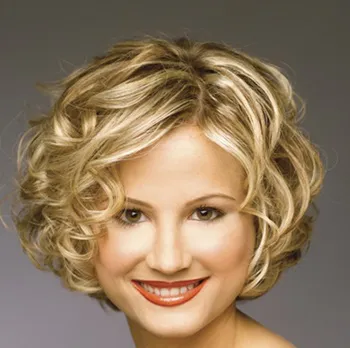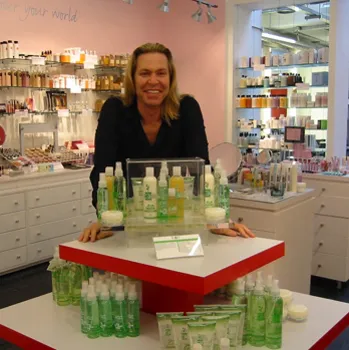
How To Protect Hair From Winter Sun Damage
Introduction
The sun can have powerful effect on hair and hair color all year round. Even people who make sure to put sunscreen on their skin through all the seasons often neglect to take the same kind of focused sun care of their hair.
Barbara Lhotan, a senior Paul Mitchell educator who is a fabulous hair colorist, as well as a curly and long hair expert, says she "always advises her hair clients to protect their tresses with the same habits used in the summer."
Depending on the climate, Winter sun damage to hair can be just one issue. Strong windy climates can also add potential to Winter hair damage.
Barbara, like other hair color experts suggest their clients select a hair color base which is natural as possible and appropriate for Winter months. What some clients may not realize, according to Barbara, is "the Winter sun can be just as aggressive about fading hair color as the Summer sun".
During the Fall, in preparation for Winter months, Barbara suggests her hair color clients "gradually transition from single colors to more-blended hair hues", Barbara likes to "achieve hair colors, especially for Winter, which look more natural with less chance of weather related fading".
Utilizing Special Products With Ultraviolet Properties And Heat Protection
After Barbara has colored, highlighted or lowlighted a client's hair, she recommends specific shampoos and hair conditioners which offer ultraviolet protection and are specifically designed to prevent hair color from fading. Winter hair color fading means redheads will lighten, brunettes may take on red and blondes may experience brassiness.
Barbara warns her hair color clients to always avoid cleansing and clarifying shampoos which can "strip hair color right off the hair". She also advises them against using hair products designed to add volume or blow open the cuticle which can also do damage to vibrant hair hues as can products for oily hair.
Whenever possible utilize color enhancing or color safe hair products at all times. Even better if you prefer to do Conditioning Only (CO) or Diluted Shampoo (DS) washing which will help stretch hair color results even longer.
For any type of heat styling on colored hair, whether during the Winter or any other seasons, Barbara insists her hair color clients "utilize a thermal protection product before blow drying, hot ironing or using hot rollers".
Other Tips For Blocking Winter Sun Damage
To prevent Winter sun general hair damage as well as hair fading, always protect your hair by wearing a cut head covering.
If you get caught without the appropriate hat, cap or covering, pull hair into a bun or twist nestled at the base of the neck to block sun, wind or other Winter conditions from drying out or fading hair.
Consistent use of a leave-in conditioner which contains sunscreen is a great way to block Winter sun damage to your tresses.
Other tips include:
Tip 1: Avoid scalding hot showers during cold Winter months. Not only is extremely hot water drying to your skin, it can dry out your scalp and strip hair color.
If you must take a hot shower, be sure to regulate the water temp and wear a shower cap or towel hat to prevent damage to your scalp or strands.
Tip 2: Wash your hair in lukewarm water. If standing in the shower with lukewarm water in the Winter is unbearable, consider standing in a hot shower with your hair covered to warm up your body and then slower lower water temp to lukewarm and then pop off your head covering and wash your hair.
Tip 3: Los Angeles hair colorist to the stars, Michael Canale (Rita Wilson, Jennifer Aniston, Lisa Kudrow) told Marie Claire Magazine in September of 2000 that hot water is one of the top culprits for causing hair color to fade. Michael recommends "turning up the cold water" when washing your hair.
Tip 4: Turning up the cold water may not be appropriate in the Winter months. Instead, fill a clean jug with cool water for a final rinse. The best way to avoid pouring cool water onto your body is to lean forward at the waist and let the cool water drain through your wet tresses. This prevent the bulk of cool water from giving your entire body the chills.
Tip 5: Reduced or absent humidity during winter months may not result directly in Sun damage but it can indirectly cause issues. Lack of humidity can make all hair types misbehave. Some wavy and curly haired folks may experience limp and flat strands. Others may experience static or unusually dry ends. Design and create your own custom blend of leave-in products which will help protect against Winter hair challenges.
You might consider mixing a light weight leave-in conditioner with a ight weight styling glaze applying to damp to help reduce limp, lank, frizzy or static filled strands.
Tip 6: If you normally air dry, plop or towel dry your strands but feel the need to blow dry in cold Winter weather, consider using a blow dryer with a diffuser attachment to encourage natural texture but minimize hot air damage.
Consider using a natural boar bristle brush like a Mason Pearson brush, or Kent brush when you blow dry without a diffuser attachment. You can create added shine and lift, as well as cut down on static
Tip 7: If you don't enjoy head wraps, consider wearing your hair up, if it's long enough. Wearing your hair on top of your head in a top knot or other twist will ultimately protect your scalp from potential Sun exposure and will help hold heat in your body.
Tip 8: Always keep an assortment of hair clips, bobby pins, headbands or hair friendly pony elastics in your desk at work or in your bag to pull your hair up or back during especially windy or blistery days. Summary
Hair exposed to Sun in Winter months is still at risk for damage, just like in Summer and other seasons of the year. Hair color can just as easily fade in cold weather as it might in hot seasons. If you access your hair's type, texture, condition, length and hair color you can easily make adjustments during Winter months to avoid unnecessary sun, climate or related damage and can avoid hair color fading.
Social Media Network Information Please follow me on Twitter at: http://Twitter.com/HairBoutique. I look forward to meeting new Thank you for visiting us at The HairBoutique Blog and for leaving your comments. They are very much appreciated. We apologize in advance but must remove any direct advertisements or solicitations. Original Publication Date: 12/14/09 - Revised Publication Date: 12/16/09 | ||||||||||||
| If you want to talk more about this or other hair care articles on HairBoutique.com or anywhere else, please post a message on HairBoutique.com's Hair Talk Forums.
|
Social Media Network Information
Please follow us on Twitter at: https://Twitter.com/HairBoutique. I look forward to meeting new people from all walks of Twitter and learning from their Tweets.


